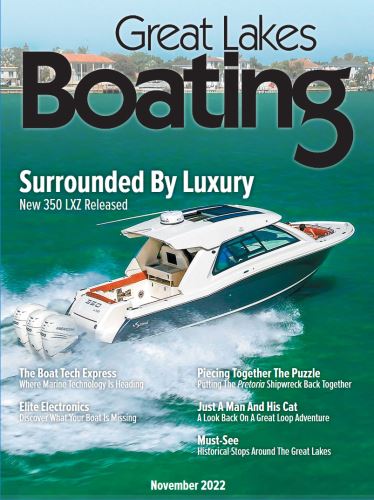.JPG_1600.jpg)
At the end of a long summer weekend—or even just the end of a day out on the water—there is plenty to clean up, put away and turn off. The bigger the boat the more items there are to check off, but a couple of important jobs are routinely overlooked or ignored. Some boats are better rigged against the following issues, but most are not. Simply put, valves can leak and parts can fail.
City Water
A city water hookup feeds water pressure from your home or marina straight into your vessel’s fresh water system. This can eliminate the need to top off the water tank as often and provide a better quality shower. However, leaving the water turned on at the dock when you head for home is ill-advised.
A leak, or worse yet a break, in your fresh water system could allow the water pressure from the dock to flow freely into the boat. Average city water pressure is 40 psi, which is 24 gallons per minute at the boat end of a 25-foot garden hose. The water tubing inside your vessel is much smaller in diameter so the water flow would probably be less, but there are 7,200 minutes in the five working days between weekends.
Even if the leak is only good for 10 gallons per minute that means (let’s see, 10 times 7,200 equals, um, is this new math? Carry the silent nine...) ah, got it. That equals 72,000 gallons of fresh water. Also known as a trip to the bottom. At 24 gallons per minute your dockside hose can put out 172,800 gallons of water in a week!
If no one is on the boat there is no reason to leave the city water pressure on. It is best practice to turn off the feed at the dock, and even to unhook the hose from the boat so someone doesn’t turn it back on to do you a “favor.” If you aren’t using the water anyway, why take that risk?
Air Conditioning
This point can be argued until we’re all sweating from the effort, but there is no real reason to leave the air conditioner running in an empty boat. Most newer systems can cool down the interior fairly quickly, but even older vessels can be made comfortable faster by closing the head and stateroom doors and vents so the salon gets first dibs on the frosty breeze.
Marine air conditioning uses raw water from outside of the boat to make the magic known as air conditioning happen. An average circulating pump can pull 480 gallons per hour out of the lake and into your boat. Hopefully, the cycle completes when the air is cooled and the water exits the vessel through a through-hull fitting in the side.
If any part of the water circulating system breaks, the pump will send 480 gallons per hour straight into the bilge. Or onto the master stateroom carpeting. The air conditioner should recognize that the flow of water has failed if it’s on the feed side, but what if it doesn’t? Or, what if the outlet hose or fitting breaks instead? Remember, 7,200 minutes!
Washdown Pumps
A boat’s washdown pump can either pick up water from the freshwater tank, or from the water holding your boat up off the lake bed. If the feed comes from the freshwater tank a break in the washdown hose could be an inconvenience. But if the water comes from the lake instead, the washdown pump could wash down a lot more than just the deck.
With a washdown pump that’s fed from the onboard tank there is a secondary risk. If the tank runs dry the pump could run until it burns out or blows a fuse. This might be more of an inconvenience than a major concern, but it’s still avoidable.
If the pump pulls its water from the lake, well, see thought number one. Remember, 7,200 minutes between weekends. That always seems like a long time to us boaters, but suddenly, it sounds like an eternity.
No one wants to come down to the boat with friends and family, gear in tow and ready for a ride, only to find extra work or worse—water where water should never be. It only takes a few extra minutes on either side of the weekend to avoid drainage, damage, or even disaster. Shut off what you’re not using anyway and keep your boat afloat.

